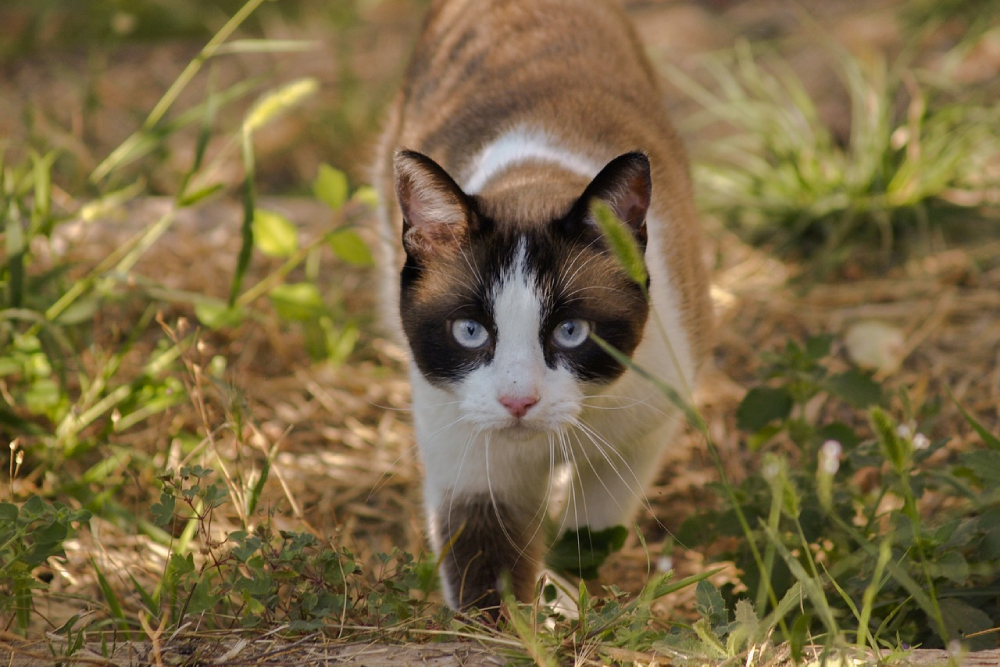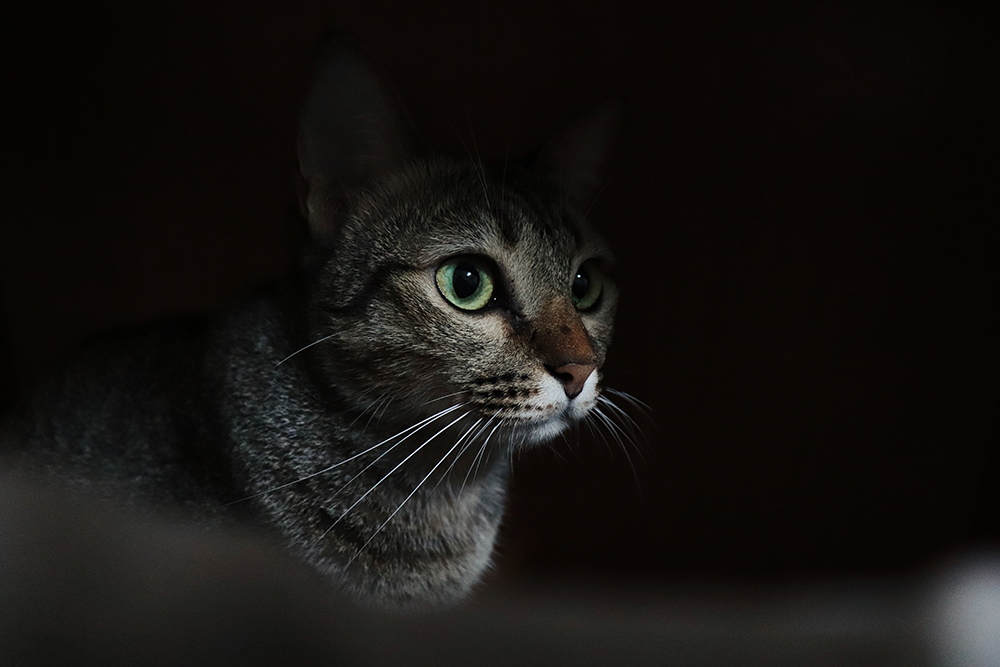Lice are a common problem for most pet owners, especially if your pet enjoys the outdoors. They can cause skin disease and itchiness, affect your pet’s coat, and even cause a variety of health complications. Many cats, especially those who enjoy the outdoors, can get lice—giving cat owners a reason to worry about their fur babies catching these terrible parasites.
Cats can indeed get lice, but not in the way that you’d think they would. Here, we discuss lice in cats, how they can catch them, signs to look out for, and what to do!
What Are Lice?
Lice are tiny insects that feed on blood. These parasites can spread from person to person through close contact. They attach themselves to any haired part of the body of their host to feed on blood and lay eggs. If left untreated, lice can cause discomfort, damage to the skin, hair loss, and even infection. Unsanitary environments are at higher risk of having lice than cleaner environments.
Lice are species-specific, meaning they do not move from one species to another. This means dogs, cats, and even humans cannot catch lice from one another, only within the same species; for example, from cat to cat.
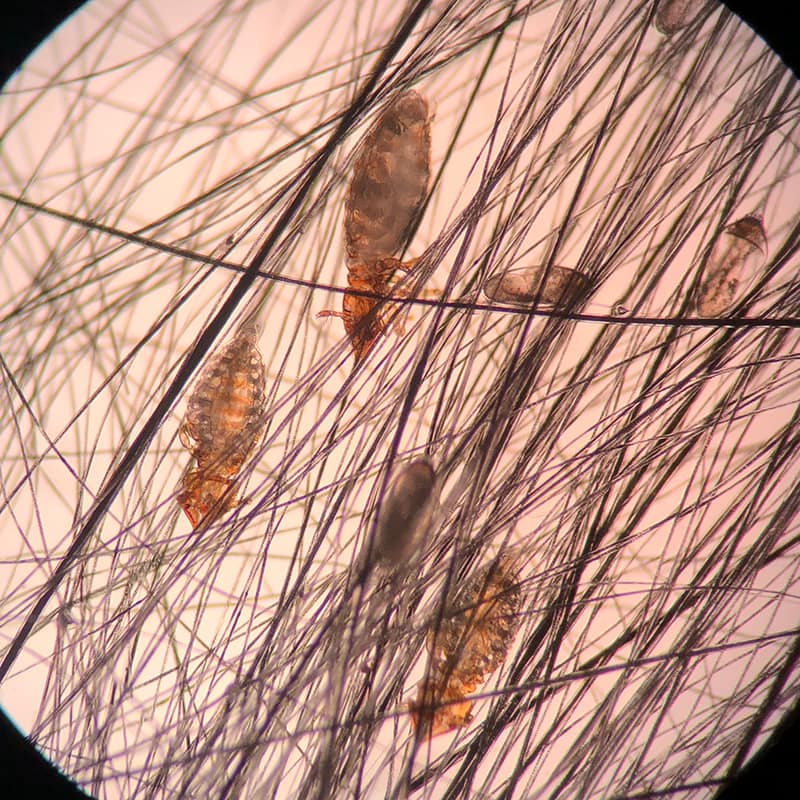
Lice in Cats
Lice may not be as common for cats as fleas, but they can still cause them discomfort and other health complications. Cats can only get infected by one specific species of lice, called the Felicola subrostratus. This particular species of lice can be passed on from one cat to another but cannot be passed on to other pets, such as dogs.
How Can Cats Get Lice?
As mentioned, cats can only get infected by a specific species of lice. Indoor cats are at less risk of catching lice compared to outdoor cats, but certain risk factors can still cause transmission.
- Unsanitary living conditions for cats
- Inability for a cat to groom themselves
- Poor hygiene among cats
- Close contact with cats already infected with lice
- Close contact with tools and objects used by cats infected with lice
When a cat is in contact with lice, the lice will attach their eggs to the base of the cat’s hair. These eggs can hatch and either live on that cat or transfer to another cat through close contact or through shared objects with other cats. These parasites will then proceed to feet on the cat’s blood by biting through their skin.
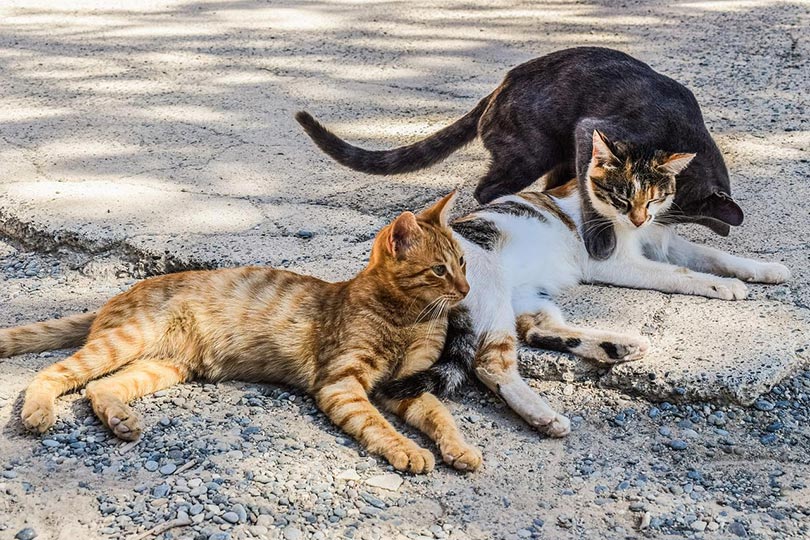
How Can I Prevent My Cats From Catching Lice?
The easiest way to prevent lice is not to allow cats to contact lice-infected cats.
Can Cats Get Lice From Humans?
The good news is that cats cannot get lice from humans, the same way humans cannot get lice from cats. Transmission of lice may be species-specific, but proper prevention practice is still recommended, such as maintaining a sanitary environment, proper hygiene, and infection control among infected individuals.
How to Tell if Your Cat Has Lice? Signs and Symptoms
Lice are big enough to be seen by the naked eye. Adult lice and their nits (eggs) can be observed anywhere on the haircoat of your cat and often look like dander stuck throughout the fur. Of course, this may be difficult to detect in light-coated cats.
- Itchiness and irritation around the skin
- Dry looking coat
- Excessive chewing, licking, and scratching
- Hair loss
If you observe any of these signs on your cat, it is always best to consult with your veterinarian for proper diagnosis and treatment.

If you need to speak with a vet but can’t get to one, head over to PangoVet. It’s an online service where you can talk to a vet online and get the personalized advice you need for your pet — all at an affordable price!
Diagnosis of Cat Lice
Upon consultation with your veterinarian, an extensive interview regarding your cat’s history, signs observed, and behavior will be performed followed by a physical examination. Your cat’s skin and fur coat will be inspected to confirm the presence of lice, whether immature or adult, as well as their eggs. Before diagnosing the presence of lice, other skin conditions and parasites will first be ruled out.
Your veterinarian may also obtain samples for examination under a microscope to determine the type of lice affecting your cat.
When a proper diagnosis is met, different treatment approaches and options will then be discussed. Like all medical complications, early diagnosis and intervention lead to better and quicker results during treatment.
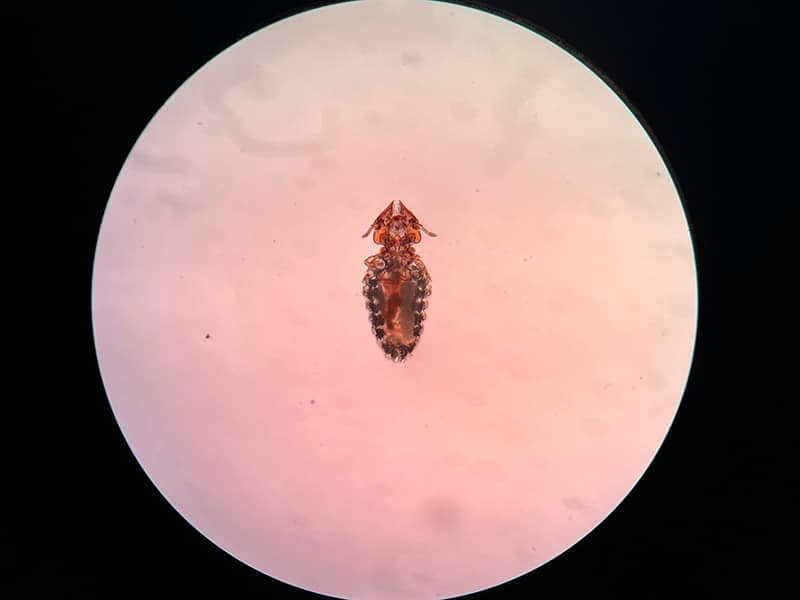
 What to Do if Your Cat Has Lice? 3 Tips for Treatment and Recovery
What to Do if Your Cat Has Lice? 3 Tips for Treatment and Recovery
Once the diagnosis and counseling process is done, treatment options will be recommended by your veterinarian. Treatment recommendations depend on factors such as severity, set-up at home, multi-pet households, and even the activity of your cat.
1. Isolation and Infection Control
Once identified to have lice, the first thing that will be recommended is to isolate your cat, especially if you live in a multi-cat household. Isolation can help stop the transmission of lice to other cats and will also minimize the amount of required cleaning. This also allows you to clean the other rooms and areas of the house without being disturbed.

2. Medication
Medication can also be prescribed to your cat. Depending on your cat, your veterinarian may prescribe a variety of shampoos, sprays, or topical medications to eliminate the lice on your cat. The duration and frequency of medication will depend on the type of medication selected.
In some cases, you may need to shave your cat’s coat to get to the deeper portions of their skin, especially if the fur is badly matted.
3. Environment and Home Treatment
Eliminating the lice found on your cat is generally the primary method of treating the environment, as well, since lice do not live long off the host or in the environment.
Conclusion
Even though cats cannot catch lice from other humans or animals, proper prevention practices must be recommended to save your cat from the discomfort of lice infections. Lice are not nearly as common as fleas, but they can still be a nuisance and greatly affect your cat’s quality of life. Keeping your cat and their environment clean can also help keep them both happy and healthy!
- You might also be interested in: Cat Lice vs Fleas: Vet-Reviewed Differences
Featured Image Credit By: Jumpstory

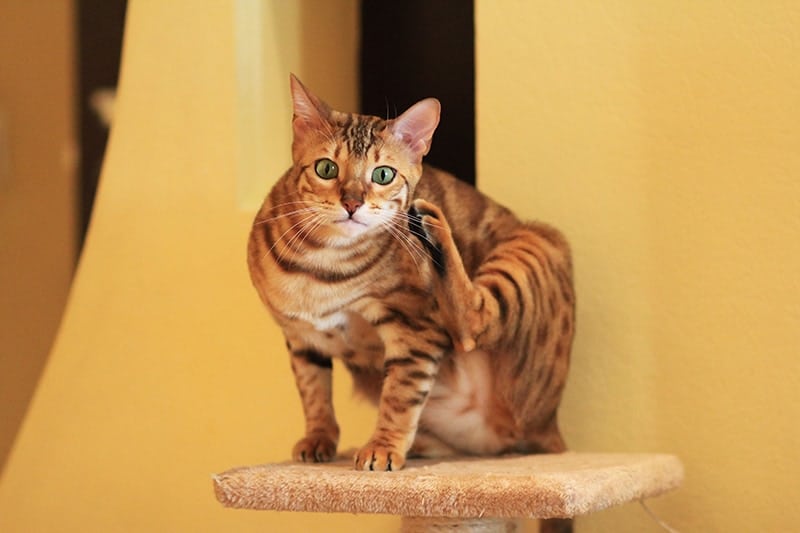


 What to Do if Your Cat Has Lice? 3 Tips for Treatment and Recovery
What to Do if Your Cat Has Lice? 3 Tips for Treatment and Recovery